20 Useful Japanese Phrases for Travelers
If you’re planning a trip to Japan and you’re not quite fluent in Japanese, no worries at all! It can feel a bit daunting wandering around a new city without the language skills to ask for directions, right? But fear not! You’ll find English signage all over the place, whether you’re hopping on public transport or exploring popular tourist spots. And guess what? When you swing by one of those handy Information Booths, you’ll likely run into friendly folks who speak fluent English. Super convenient, huh? Still, it never hurts to pick up a few basic Japanese phrases for those extra special moments.
ALSO READ: Tokyo, Japan: A Travel Guide For First-Time Visitors
Here are 20 useful Japanese phrases for travelers.
Some random strangers may not respond or be reluctant at first, but this is typically not due to a lack of English proficiency. They are just embarrassed by their self-perceived poor English skills and would prefer not to participate in a conversation in which they lack fluency. The majority of them are eager to assist you in any way they can. They would even go above and beyond.
Japan is a very friendly place for travelers and the people are extremely polite. That is why it’s important to return the same courtesy by learning these essential Japanese phrases to use during your trip. It may even impress people you meet because you took the time to learn some of their languages.
USEFUL JAPANESE PHRASES: THE BASICS
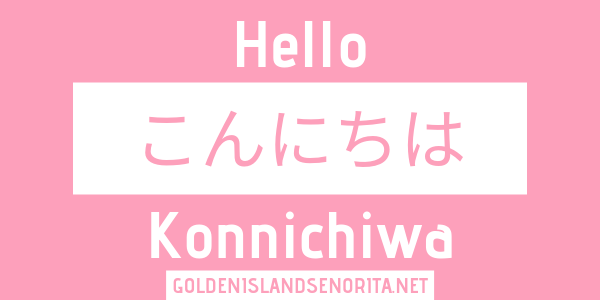
It can also be used as good morning or good afternoon.

“Ohayou gozaimasu” is the formal way of saying good morning. The informal way is “Ohayou.” To be safe, use the formal one when greeting strangers.
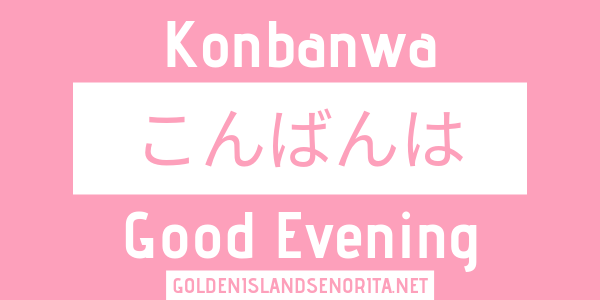
Not to be confused with “Oyasumi” which means “good night.”
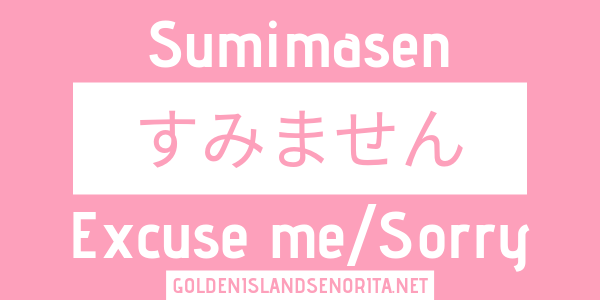
“Sumimasen” is an incredibly convenient and versatile word and is commonly used everyday. It means “I’m sorry” but it can also be used as “excuse me” when stopping someone on the street to ask directions, or when trying to pass someone in a narrow street. Generally, it is used as a polite way of getting someone’s attention.

It is used when you are asking for help to do something that you cannot do by yourself or when making a request for service.
Example: “Tokyo eki made onegaishimasu.” = Tokyo Station, please. (to taxi driver)
Note: “Kudasai” also means “please” but is a polite way to order someone to do something.
Example: “Chotto matte kudasai.” = Please wait.

Saying “Hai” can also mean “I understand.”
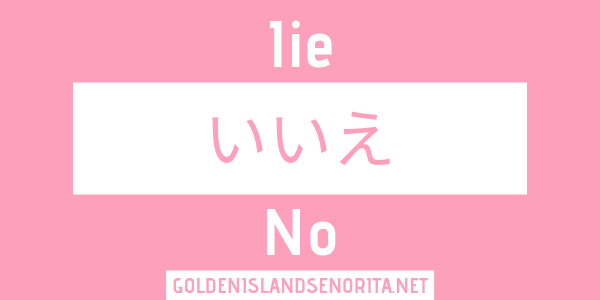
“Iie” means “no” as in trying to correct someone. Don’t use it to refuse things.
If someone offers you something and you want to decline it, you may say “Kekkou desu” which means “It’s OK” but can also be used as “No, thank you.”
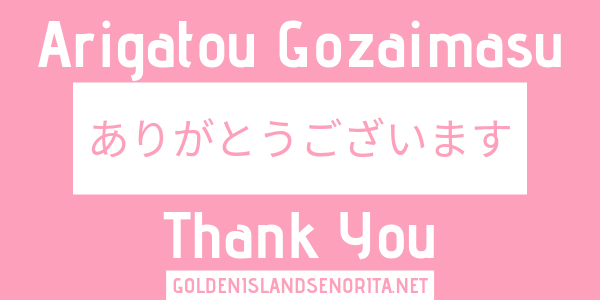
There are two ways of saying “thank you” in Japanese. “Arigatou gozaimasu” is the formal way and “Arigatou” is the informal. Most people bow when saying this as a way of showing gratitude.
Thank you very much = “Doomo arigatoo gozaimasu.”
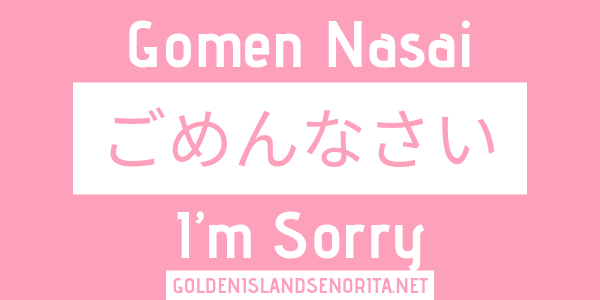
While “Sumimasen” will help you in most cases, but when you did something more serious like when you bumped into someone or if you step in someone’s foot, you should say “gomen nasai” while bowing repeatedly.
Mōshiwake arimasen is a version more formal than “gomen nasai” and is used when we do something really bad or unforgivable. Commonly used in workplaces.
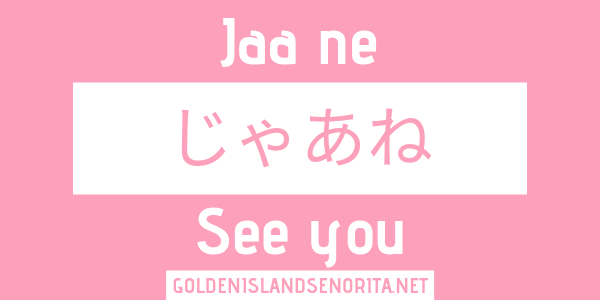
“Jaa ne” means “see you” and is the most common and casual way of saying “good bye.” Throughout my visits in Japan, no one ever used “sayounara.”
USEFUL JAPANESE PHRASES: BREAKING THE LANGUAGE BARRIER
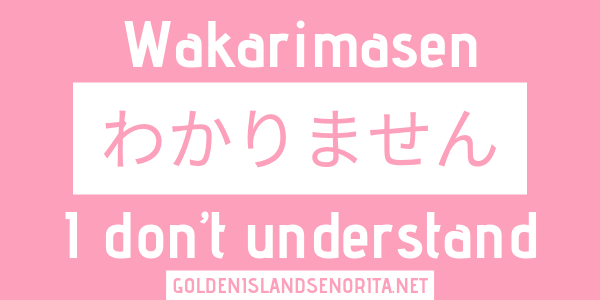
You use “wakarimasen” when you don’t understand something or what they’re saying. The casual way of saying is “wakaranai.”
“Shirimasen” means “I don’t know.”
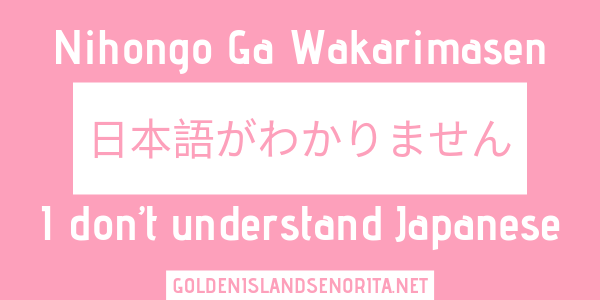
To be more specific, you can tell them that you cannot understand Japanese by saying “Nihongo ga wakarimasen.”

If it’s a mouthful, you can also ask “Eigo, okay?”
If you want to ask if anyone speaks another language besides English you can replace ‘Eigo’ with the language of your choice.
Furansugo o hanasemasu ka? = Can you speak French?
You can also ask to repeat what they said by saying:
“Mou ichido onegai shimasu?” = Could you repeat that, please?
or to speak slowly, “Yukkuri hanashite kudasai?” = Can you please speak slowly?
USEFUL JAPANESE PHRASES: ASKING FOR DIRECTIONS
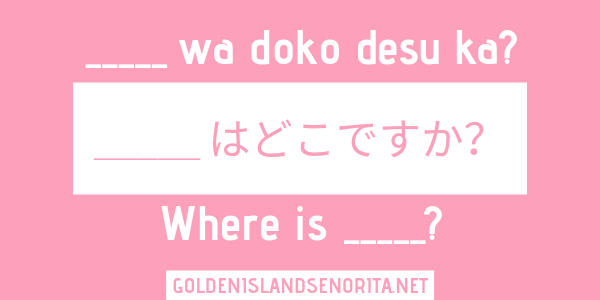
Example: Konbini wa doku desu ka?
Fill in the blank with places from the list below.
Facilities:
- Bank: Ginkou (銀行)
- Convenience store: Konbini (= コンビニ)
- Embassy: Taishikan (大使館)
- Front Desk: Uketsuke (受付)
- Hospital: Byouin (病院)
- Hostel: Hosuteru (ホステル)
- Hotel: Hoteru (ホテル)
- Money Exchange: Ryougae (両替)
- Police Station: Keisatsusho (警察署)
- Post Office: Yubinkyoku (郵便局)
- Toilet: Toire (トイレ)
- Tourist Information: Kankou annaijo (観光案内所)
Transportation:
- Airplane: Hikouki (飛行機)
- Airport: Kuukou (空港)
- Bus Stop: Basu noriba (バス乗り場)
- Subway: Chikatetsu (地下鉄)
- Taxi: Takushi (タクシー)
- Train: Densha (電車)
- Train Station: Denshya no eki (電車の駅)
- Ticket Sales: Kippu uriba (切符売り場)
Attractions:
- Amusement Park: Yuenchi (遊園地)
- Art Gallery: Bijitsukan (美術館).
- Beach: Hamabe (浜辺)
- Garden: Niwa (庭)
- Market: Shijou (市場)
- Mountain: Yama (山)
- Museum: Hakubutsukan (博物館)
- Observatory: Tenboudai (展望台)
- Palace: Goten (御殿)
- Park: Koen (公園)
- River: Kawa (川)
- River Cruise: Kawa kudari (川下り).
- Ruins: Iseki (遺跡)
- Shopping Street: Shoutengai (商店街).
- Shops: Mise (店)
- Shrine: Jinja (神社).
- Stadium: Sutajiamu (スタジアム).
- Statue: Zou (像)
- Temple: Tera (寺)
USEFUL JAPANESE PHRASES: ORDERING FOOD OR SHOPPING
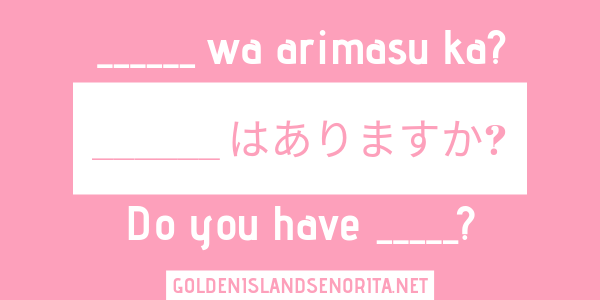
Example: Wagyu wa arimasu ka?
Fill in the blank with the name of the food from the list below.
Or you can ask “_____ wo Kudasai?” = “May I have _____?”
Note: “Kudasai” is a polite way of asking please. By asking this phrase, you can look at the product up close. It can also mean you want to purchase the product.
- Beef: Gyu Niku (牛肉)
- or if Japanese beef: Wagyu (和牛)
- Breakfast: Asa gohan (朝ごはん)
- Cake: Keki (ケーキ)
- Chicken: Tori niku (鶏肉)
- Dessert: Dezato (デザート)
- Dinner: Yushoku (夕食)
- Eel: Unagi (鰻)
- Egg: Tamago (卵)
- Fish: Sakana (魚)
- Fruits: Kudamono (果物)
- Lunch: Chushoku (昼食)
- Meat: Niku (肉)
- Pastry/Sweets: Kashi (菓子)
- Pork: Butaniku (豚肉)
- Prawn: Ebi (海老)
- Rice: Gohan (ご飯)
- Salmon: Sake (鮭)
- Scallop: Hotate (帆立)
- Sea Urchin: Uni (うに)
- Snack: Otsumami (おつまみ)
- Soup: Supu (スープ)
- Supper: Yashoku (夜食)
- Tuna: Maguro (鮪)
- Vegetables: Yasai (野菜)

Or you can ask: “Okanjou wo onegai shimasu?” = Can I have the bill, please?
If you know the product name in Japanese you can use “______ wa Ikura Desuka?”
When paying:
“Genkin de onegai shimasu.” = I would like to pay in cash.
“Kurejitto kaado de onegai shimasu” = I would like to pay by credit card.
USEFUL JAPANESE PHRASES: EMERGENCY


Example: Saifu o naku shimashita.
Fill in the blank with the name of the items from the list below.
Things that travelers may lost:
Wallet: Saifu
Ticket: Kippu
Luggage/Bags: Nimotsu
Mobile phone: Keitai denwa or simply, keitai
Passport: Pasupoto
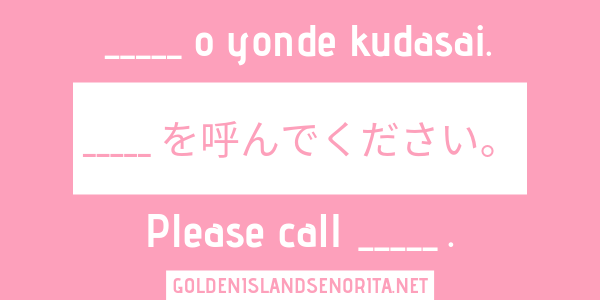
Example: Isha o naku shimashita.
Fill in the blank with one of the things from the list below.
Ambulance: Kyuukyuusha
Doctor: Isha
Fire department: Shou bou chou
Police: Keisatsu
USEFUL JAPANESE PHRASES: FOR SOLO TRAVELERS
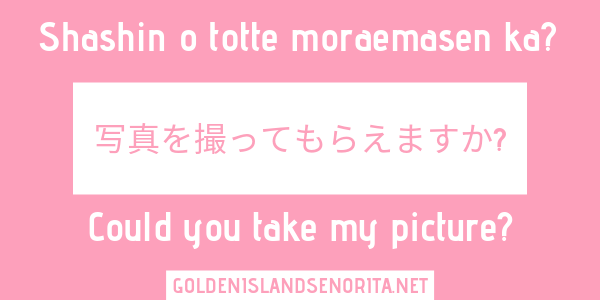
When you want someone to take picture of you in a beautiful spot. It can also be accompanied by hand gestures especially if you have a camera/smartphone in your hand. Just ask nicely and don’t forget to say “Arigatou gozaimashita” after.
Credit: Nix U. for proofreading.

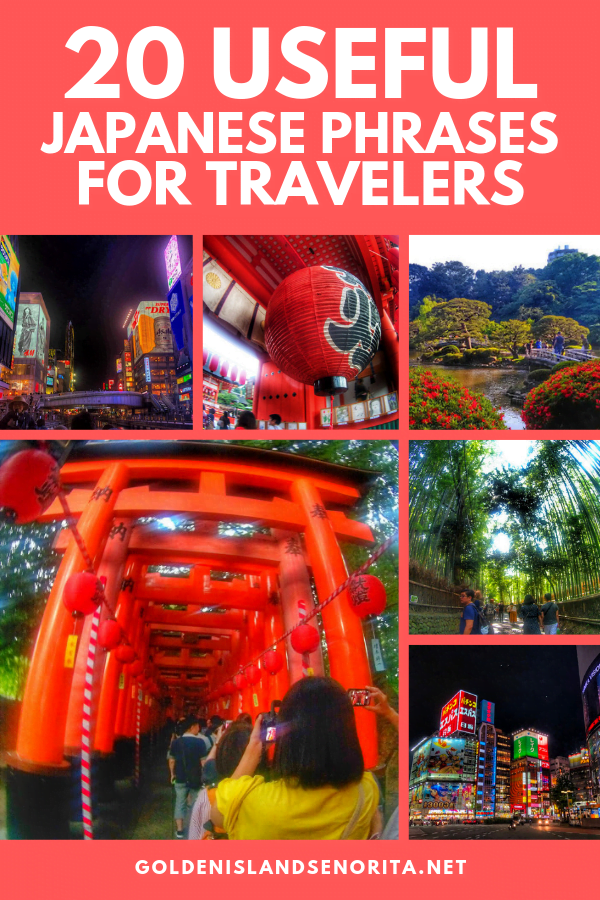


Japanese words are quite easy to learn. At first, forget about the grammar, Japanese people appreciate when we use these keywords.
I love how you broke it down and explained when and how to use certain words
Love your useful sharing, so easy to learn as very clearly explain each 25 phrases, thanks!
my boyfriend and I were thinking of going to japan this year but due to covid19 and the lockdown, it had to be postponed so hopefully next year. thank you for sharing these phrases.
ポリーさん、便利と簡単な言葉やフレーズを教えてもらってありがとうございます!
Thank you for the simple and useful words in Japanese. Although I am really fluent, it was really to understand!